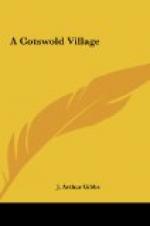HENRY VAUGHAN.
It is the end of May; a bright, rainless, and at times bitterly cold month it has been. But now the chill east wind has almost died away. Summer has come at last. Once more I am making for the Downs. Very seldom am I there at this period of the year; but before going away for several months, I bethought me that I would go and inspect the improvements at the fox-covert, stopping on my way at the “Jubilee” gorse covert we lately planted, to see if there is a litter of cubs there this year. Across the fields we go, ankle deep in buttercups and clover at one moment, then up the hedge to avoid treading the half-grown barley. We are so accustomed to take a bee-line across these shooting grounds of ours that we quite forget that the farmer would not thank us for trampling down his crops at the end of May. But soon we are on the Downs, well out of harm’s way and far removed from highroads and footpaths. What a glorious panorama lies all around! Why do we not come here oftener in summer?—the country is ten times more lovely then than it is in the shooting season. A field of sainfoin in June, with its glorious blossoms of pink, is one of the prettiest sights in all creation. Seen in the distance, amid a setting of green wheatfields and verdant pastures, it ripples in the garish light of the summer sun like a lake of rubies.
“Land and sea
Give themselves
up to jollity;
And with the heart
of May
Doth every beast
keep holiday.”
Ah! there will be lots of foxes when the hounds come to the fox-covert next October. The unpleasant smell at the mouth of the earth tells us that there are cubs there; and as we stand over it we can hear them playing down below in the bowels of mother earth. Very distinct, too, are the tracks—traffic, the keeper calls them—leading by sundry well-trodden paths to the dell below—a nice sunny dell, facing south-west, where in spring the violets and primroses grow among the spreading elder. These cubs were not born here. Their mother brought them from an old hollow stump of a tree by the river, half a mile away. When she found her lair discovered by an angler who happened to pass that way, she brought them across the river by the narrow footbridge right up here on to the hill. The cubs from the tree have disappeared, so no doubt these are the ones. Well, there are lots of rabbits for them; the little fellows are popping about all over the place.
How tame all wild animals become in the summer!—all except the ones we want to circumvent—magpies, jays, stoats, and such small deer. Lapwings fly round us, crying restlessly, “Go away, go away!” Their shrill treble accents remind one of a baby’s squall. Pigeons and ringdoves, partridges and hares seem to be plentiful “as blackberries in September.” A gorgeous cock pheasant crows and jumps up close to us, followed by his mate. This is a pleasing sight up here, for they are wild birds. There has been no rearing done in these copses on the hills within the memory of man.




